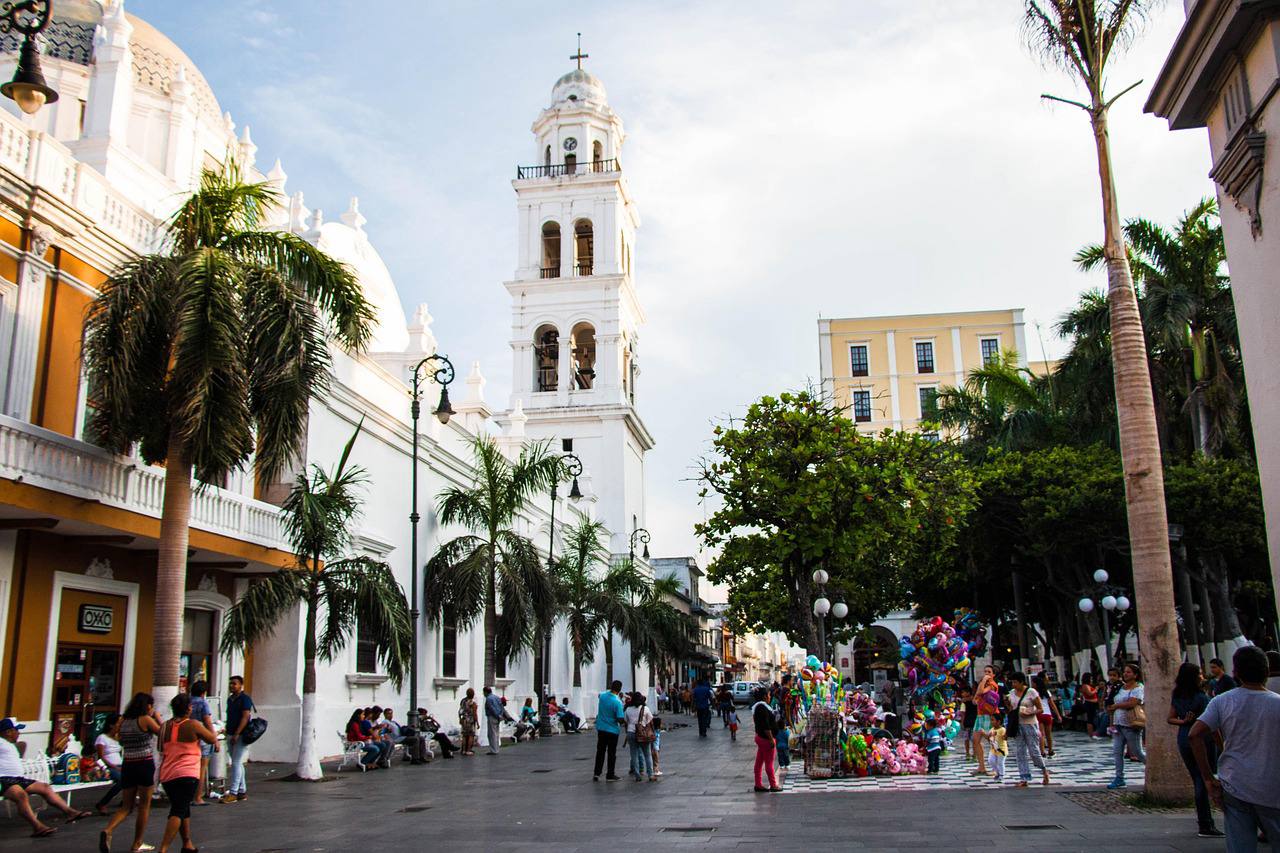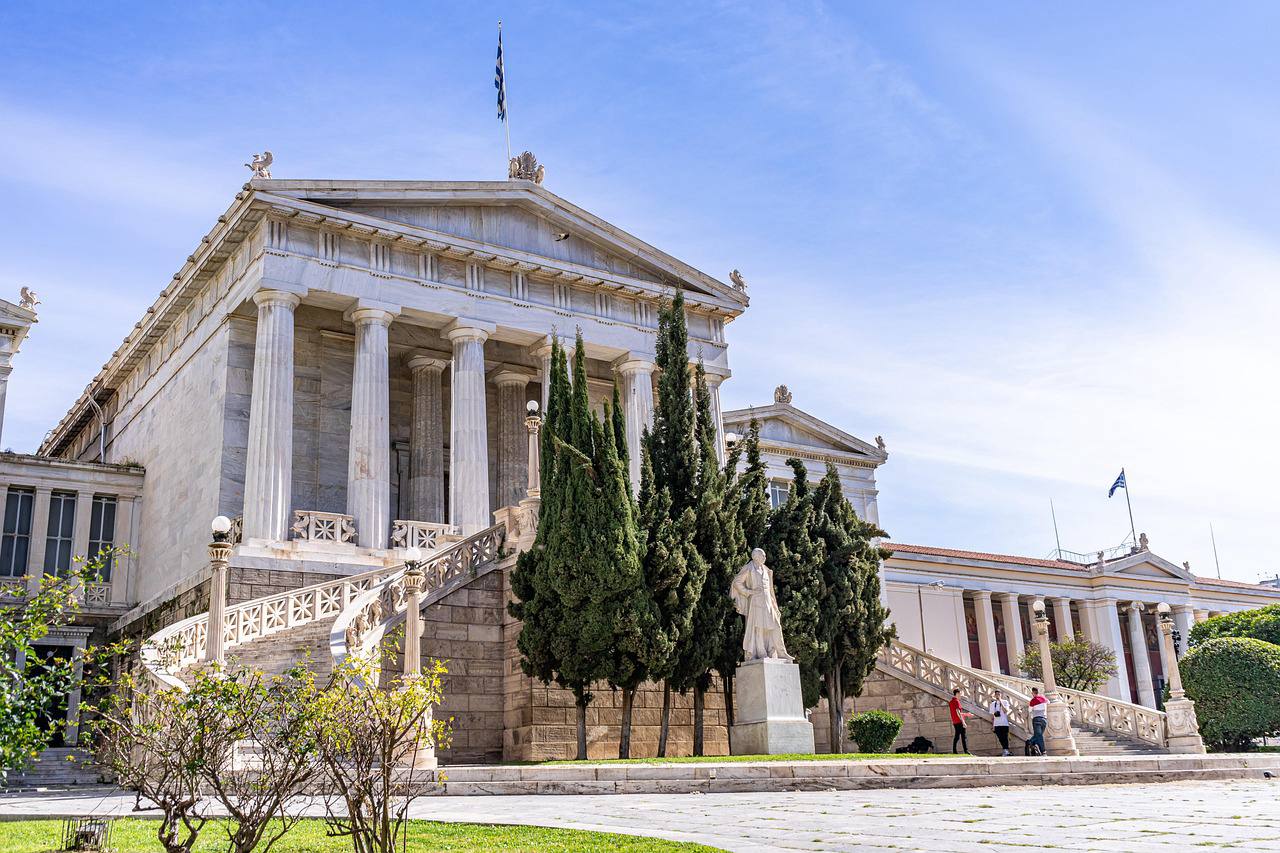
Today, international mobility has become a natural part of both education and career. More and more young professionals are building their careers abroad, while high school and university graduates are applying to universities all over the world. But crossing borders almost always comes with one requirement: confirming the validity of your diploma. For a foreign country, your diploma is not automatically valid — it is just a document issued abroad, and it needs to go through an official verification process.
You may need this confirmation in many situations. The most common cases are applying for a Master’s program, a PhD, or other academic courses, where universities must be sure your previous education is authentic. It is also essential when applying for jobs — especially in government-related or regulated professions, where your right to practice depends directly on your degree. For certain regulated fields, such as medicine or law, a simple legalization is not enough. In these cases, a full recognition procedure (called nostrification) is required, and the exact process depends on the rules of the country where you plan to study or work.
There are two main ways of confirming the authenticity of education documents worldwide: apostille and consular legalization.. If both the country that issued your diploma and the country where you will use it are members of the 1961 Hague Convention, an apostille is applied. This is a simplified legalization method — a special stamp placed on your diploma or its notarized copy. The apostille confirms the authenticity of the official signature and seal on your document, but not the content of your studies.
If at least one of the countries is not a member of the Hague Convention, consular legalization is required. This is a more complex process that involves several steps: first, your diploma must be verified by the relevant authorities in the country where it was issued (for example, the Ministry of Education and the Ministry of Foreign Affairs). Then, it must be legalized by the consulate of the country where you intend to use it. This process takes more time and effort, but in some cases it is the only way to make your diploma legally valid abroad.
In short, having your diploma recognized abroad is not just a formality — it is a necessary step for studying, working, or relocating to another country.
Europe
If you want your Bachelor’s diploma to be recognized in Europe, you will need to go through a procedure called nostrificatioи. This is the process of officially evaluating your diploma to confirm that it meets the education standards of the country where you plan to study or work. Nostrification is especially important if you are applying for a Master’s or PhD program, or if you want to work in a professional field.
Main steps of diploma recognition in Europe:
1. Apostille or consular legalization: For most countries that are members of the Hague Convention, your diploma needs an apostille on the original document. If the destination country is not a member, consular legalization will be required, which means going through several stages of certification via the consulate.
2. Official translation: Almost always, you will need a notarized translation of your diploma and supporting documents into the language of the country where you are applying.
3. Application to NARIC or similar authority: NARIC (National Academic Recognition Information Centres) assess diplomas to determine whether your qualification meets the education standards of that country. In some cases, the process can be done through online platforms.
4. Additional documents: Depending on the country, you may also be asked to provide other documents, such as an academic transcript with the number of study hours, a curriculum, internship confirmations, or proof of professional licensing (for doctors, engineers, etc.).
5. Expert evaluation: In some countries, your diploma may need to undergo an additional expert review to verify that it matches the local level of education.
What documents are needed:
- Original diploma and its translated copy;
- Apostille or consular legalization;
- Academic transcript showing study duration and subjects;
- Proof of internships or additional qualifications (if required).
Bilateral agreements
In addition to the standard nostrification procedure, Europe has a number of bilateral and multilateral agreements that simplify the recognition of qualifications. Thanks to these agreements, some countries recognize each other’s diplomas directly, without a full re-evaluation. Examples include cooperation between the Scandinavian countries, the Benelux states, and several Central European countries. These agreements may not cover all professions but they make the recognition process much faster and easier.
Lisbon recognition convention (1997)
Many European countries are parties to the Lisbon Recognition Convention of 1997 on the recognition of qualifications concerning higher education in the European Region. It was developed by the Council of Europe and UNESCO and serves as an important legal framework for recognizing foreign diplomas, including Bachelor’s degrees.
Key principles of the Convention:
- Countries agree to recognize foreign diplomas unless they can prove that there are substantial differences between the programs.
- A “presumption of recognition” applies: qualifications are recognized by default, unless there are strong reasons not to.
- Each country must ensure a clear and fair recognition process and set up a national recognition center (ENIC/NARIC).
The Convention does not establish automatic recognition, but it makes the process much simpler and more transparent, especially for academic purposes.
In practice, the final decision on diploma recognition is always made by national authorities or universities. However, being part of the Lisbon Convention means that the procedure must be fair, transparent, and based on clear rules.
Russia and the EAEU countries
In the post-Soviet region, there are special agreements that make diploma recognition much easier — including Bachelor’s degrees. Thanks to these agreements, graduates who studied in one of the member countries can use their diplomas in others without the need for an apostille or consular legalization. This applies to further studies, employment, and even getting professional licenses.
Mutual recognition within the EAEU
Since 2015, the Treaty on the Eurasian Economic Union (EAEU) has been in force. Its members are Russia, Belarus, Kazakhstan, Armenia, and Kyrgyzstan. Within the EAEU, official documents — including diplomas — are accepted without apostille and without consular legalization. In most cases, a notarized translation into the language of the destination country is enough.
A special agreement on the mutual recognition of educational documents within the EAEUalso confirms that, for example, a Bachelor’s diploma issued in Kazakhstan is recognized in Russia or Armenia without any additional procedures.
The Minsk Convention (1993)
Alongside EAEU agreements, the Minsk Convention of 1993 is also in effect. It is a multilateral treaty on legal assistance among former USSR countries. The convention covers a wide range of official documents, including diplomas and academic transcripts. According to Article 13, no apostille or consular legalization is needed — only a notarized translation, if the language of the document differs from that of the receiving country.
Countries that are part of the Minsk Convention include Russia, Belarus, Kazakhstan, Uzbekistan, Armenia, Kyrgyzstan, Tajikistan, Moldova, and Azerbaijan, among others.
Bilateral agreements
Even if a country is not part of the EAEU or the Minsk Convention (for example, Georgia), bilateral agreements may still apply. Russia has such agreements with Belarus, Armenia, Kazakhstan, and Uzbekistan. These agreements also remove the need for apostille or legalization.
What if your diploma was issued outside the EAEU?
If your Bachelor’s diploma was issued in another country — for example, Germany, the USA, or Turkey — and you want to use it in Russia, Kazakhstan, or another EAEU country, general international rules apply:
- If the issuing country is a member of the Hague Convention (1961), your diploma needs an apostille from the competent authority.
- If the country is not a member, consular legalization is required: the diploma must first be certified by the Ministry of Foreign Affairs in the issuing country, and then by the consulate of the destination country.
- In some cases, nostrification (formal recognition of the diploma as equivalent to a national one) may also be required. This is especially important if the diploma is from a university that is not included in international rankings or agreements. In Russia, nostrification is carried out by the Main Expert Center of Rosobrnadzor..
It is always important to check the exact requirements in advance, as they may differ depending on your goal (study, work, licensing) and the authority reviewing your documents.
North America
Recognition of foreign Bachelor’s degrees in the USA and Canada is different from the European nostrification system but still requires careful preparation.
United States
Unlike Europe, the US has no centralized government system for recognizing foreign diplomas. Instead, recognition is done through credential evaluation by accredited private agencies. These agencies interpret your diploma according to the American education system and confirm whether it is equivalent to a US Bachelor’s degree.
Credential evaluations may be required by:
- Universities (for Master’s or PhD admission);
- Employers (for jobs requiring higher education);
- Licensing authorities (for professions like medicine or law);
- Immigration services.
How credential evaluation works
1. Define the purpose
The type of evaluation depends on the goal. Course-by-course evaluation is a detailed review of courses, grades, and GPA — usually for study purposes. Document-by-document evaluation confirms the level and name of the degree — usually for employment or immigration.
2. Choose an evaluation agency
The most recognized US agencies belong to professional associations:
- NACES (National Association of Credential Evaluation Services)
- AICE (Association of International Credential Evaluators)
3. Submit documents
Typically required: original diploma and transcript, certified English translation, scans of originals, details about the study program, courses, and accreditation (if requested).
4. Evaluation and report preparation
The agency checks:
- Level equivalence (e.g., does a three-year European Bachelor match a US four-year Bachelor?);
- Program structure and credit hours;
- GPA according to the US system;
- Institution accreditation.
Note: Three-year European Bachelors may not always be considered equivalent to a US four-year degree.
5. Receive and share the report
The final report is sent to you and can be forwarded to universities, employers, or immigration authorities.
In the US, recognition of a Bachelor’s degree is done through independent academic evaluation, not by government authorities. Choosing a reliable NACES or AICE agency and preparing documents correctly is the key step. This ensures your education is legally recognized and allows access to study, work, or licensing in the United States.
Canada
If you plan to study, work, or immigrate to Canada, your foreign Bachelor’s degree must be officially recognized. Unlike the US, where evaluation is done by private agencies Canada has a centralized assessment process called Educational Credential Assessment (ECA). ECA is required for most cases, including immigration programs such as Express Entry, professional licensing and employment in your field.
The evaluation determines whether your diploma is equivalent to a Canadian Bachelor’s degree. Without it, you cannot receive points for education in the immigration system or prove your qualification to Canadian employers.
How the process works
1. Define the purpose
For immigration (Express Entry): ECA approved by IRCC (Immigration, Refugees and Citizenship Canada) is required. For study: some universities may request a separate academic evaluation directly.
2. Choose an approved organization
Only officially accredited organizations can conduct ECA. Current options include:
- WES (World Education Services)
- ICAS (International Credential Assessment Service of Canada)
- CES (Comparative Education Service, University of Toronto)
- IQAS (International Qualifications Assessment Service)
- ICES (International Credential Evaluation Service)
- MCC (Medical Council of Canada) — for physicians only
WES remains the most popular option due to its processing speed, but other agencies are also recognized by IRCC and are often used depending on the purpose of the assessment or region.
3. Collect and submit documents
Typically required:
- Diploma and transcript;
- Translation into English or French (if needed);
- Copies of originals; some agencies require direct submission from the university;
- Identity document;
- Apostille/legalization is usually not required, but authenticity must be verified by the university if requested.
4. Receive and use the report
The ECA report indicates the Canadian equivalent of your degree. It is valid for 5 years and can be used for immigration, employment, or university applications.
Key points
- ECA is not professional licensing, but it is often the first step for regulated professions (engineering, teaching, accounting).
- Three-year Bachelor’s degrees may be recognized as a two-year diploma, affecting Express Entry points.
- Cost: approximately CAD 200–300. Processing time: several weeks to months, so start early.
In Canada, diploma recognition is a formal procedure regulated by the government. For immigration, licensing, or employment, you must complete an ECA through an approved organization that matches your specific goal. Choosing the right agency and submitting your documents correctly can significantly increase your chances of success in Canadian programs, including Express Entry and professional accreditation.
South America
Although countries in South America share close cultural and historical ties, each state has its own rules for recognizing foreign diplomas. However, thanks to regional integration within MERCOSUR (Mercado Común del Sur), there are now simplified mechanisms for Bachelor’s degree recognition across the region.
The key instrument is the 2018 Agreement on the Recognition of Higher Education Degrees, which is gradually being implemented by member states. Under this agreement, Bachelor’s diplomas (títulos de grado) can be automatically recognized if the university is officially accredited in the home country and the program has international accreditation under the ARCU-SUR system. This system ensures comparable academic standards and replaces the need for a full academic re-evaluation.
In practice, this means that a Bachelor’s diploma from an accredited university in Argentina may be recognized in Uruguay without lengthy nostrification procedures — only a document authenticity check is required. The agreement works on the principle of reciprocity and is being extended step by step to more countries and specializations.
Additionally, countries such as Argentina, Brazil, Uruguay, and Paraguay have signed bilateral agreements that eliminate the need for apostille or consular legalization of diplomas. This has been made possible both by their participation in the 1961 Hague Convention and by regional treaties. Still, even under the simplified system, a notarized translation of documents is often required.
Overall, South America is moving toward greater integration and simplification in diploma recognition. For Bachelor’s graduates planning further study or work within MERCOSUR, this means a preferential regime for having their qualifications recognized — provided the program and university meet accreditation standards and documents are properly submitted.
Asia
The approach to recognizing foreign diplomas in Asia is highly diverse — ranging from well-structured accreditation systems to complex, bureaucratic legalization procedures. Unlike Europe’s Bologna Process or South America’s MERCOSUR agreements, there is no unified regional framework here..
In most Asian countries, when applying to a university or for employment, a foreign Bachelor’s diploma (including IB diplomas) must go through a formal validation process. This usually includes:
- Apostille or consular legalization, depending on whether the country has joined the 1961 Hague Convention,
- Translation into the national language (e.g., Chinese, Japanese, Korean, etc.),
- Notarization of the translation,
- In some cases, academic recognition or nostrification, particularly in public universities,
- Verification by a government body or university authorized to assess foreign qualifications.
China requires evaluation through the CHESICC or CSCSE centers. The diploma must first be legalized in the country of issue and then translated into Chinese.
South Korea and Japan generally do not conduct centralized nostrification but require official confirmation of authenticity (apostille or legalization). Final recognition is usually decided by the specific university.
India recognizes some foreign diplomas if they bear an apostille and meet national academic standards. For university admission, however, a separate qualification check may be required through bodies such as the Association of Indian Universities (AIU).
In Southeast Asia (Thailand, Vietnam, Indonesia), requirements vary: some universities accept just an apostilled diploma with a notarized translation, while others demand a lengthy recognition process through the Ministry of Education.
Recognition rules differ greatly across Asia. It is crucial to first check: whether the country is a member of the Hague Convention (apostille vs. legalization), which authority is responsible for recognition (government vs. university), whether an academic assessment is required.
Recommendation: Before starting the process, contact the specific university or institution where you plan to apply and confirm their current requirements. Even if your diploma is formally recognized, universities may impose their own academic criteria for admission to Master’s or PhD programs.
Middle East
In the Middle East, and particularly in the United Arab Emirates (UAE), recognition of foreign diplomas is strictly regulated. The process is required for employment, obtaining a residence visa, continuing education, or joining government programs. Recognition is handled by the Ministry of Higher Education and Scientific Research (MOHESR) and follows a two-step procedure.
Step 1 — Verification
All foreign diplomas must first be verified through one of MOHESR’s official partners: QuadraBay or DataFlow. These agencies confirm the authenticity of education obtained abroad. Applicants submit their documents (diploma, transcript, sometimes thesis abstract), complete an online form, and pay the verification fee (starting from AED 345). The review usually takes up to 30 days. Importantly, embassy legalization does not replace this verification — documents must still go through QuadraBay or DataFlow.
Step 2 — Recognition
After successful verification, the second stage begins — the actual recognition of the diploma. Using the registration number received, the applicant logs into the MOHESR portal, authenticates via UAEPass, confirms their education details, and pays the government fee. The fee depends on the degree level: AED 100 for a Bachelor’s degree, AED 150 for a Master’s degree, AED 200 for a PhD. If all requirements are met, the official Recognition Report is issued within two business days.
The Ministry may refuse recognition if the authenticity of the diploma is in doubt, the issuing institution is not accredited, or other conditions are violated. Fees are non-refundable. All documents must be submitted in Arabic or English, or accompanied by an official translation.
This two-step procedure is mandatory for graduates from all countries (CIS, Europe, Asia, Africa, etc.). Even if the diploma has already been legalized by the embassy of the issuing country, it must still undergo verification through QuadraBay or DataFlow.
In short, the UAE system combines strict authenticity checks with high academic standards. This ensures that international graduates can integrate into the country’s educational and professional environment while maintaining trust in the quality of qualifications.
What is an apostille?
What is an apostille? Why do I need an apostille? How do I get an apostille? - Our video will explain everything you need to know about the apostille. If you have a document that needs to be certified with an apostille for use abroad, Schmidt and Schmidt will assist you! We provide apostille services in more than 100 countries worldwide.
How can we help?
International mobility today is not just an opportunity — it is a reality for thousands of students and professionals worldwide. However, it requires more than ambition and effort — it also demands formal confirmations: recognized diplomas, notarized copies, apostilles, and in some cases, full consular legalization. While the Hague Convention has simplified document recognition among its member states, many exceptions and country-specific rules still apply in global practice.
Our company supports clients throughout the entire process — from obtaining a notarized copy of a diploma to full consular legalization. We have extensive experience with IB diplomas and other international qualifications in more than 120 countries, assisting both individuals and educational institutions in ensuring their documents are fully ready for use abroad.
Our services include:
- Legalization of IB diplomas and other educational documents of any complexity;
- Official translations into the required language — from English to Arabic, always in line with the destination country’s rules;
- Submission of documents to government authorities and consulates;
- Transparent cost calculation — covering all fees, duties, translations, and delivery to avoid hidden charges;
- Worldwide delivery — secure and on time.
⚠️ We do not offer “express services,” as we work strictly with government bodies whose timelines cannot be expedited. This is why we recommend starting document preparation 2–3 months before the intended submission date.
Each country has its own requirements for legalization. That is why we treat every case individually: clarifying the destination country, number of documents, originals or scans, translation needs, and submission specifics. We know how important this is — and we guarantee that your documents will be processed in full compliance with the requirements of the country where you plan to use them.
If you are uncertain about the exact procedure for your case — contact us. We will conduct a preliminary review, suggest the optimal pathway, and spare you unnecessary bureaucracy. We are here to make international legalization clear, transparent, and safe.





